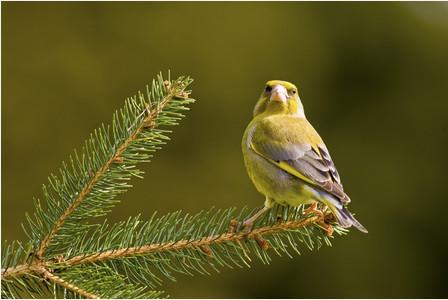Easter arrives early this year and as we celebrate the holiday by giving and receiving eggs (of the chocolate variety of course!), our feathered friends are also preparing to lay their first clutches of the year.
March heralds the start of the breeding season. You may have noticed your local Blackbirds, Robins and Finches darting across gardens and flitting in and out of hedges and trees. This is a definite indicator that the proverbial sap has started to rise. It is now time for our birds to secure their territory, find a mate and bag their perfect nesting spot.
From the beginning of the month you will notice birds gathering nesting material in their beaks including straw, grass, moss and twigs. The RSPB also encourage people to leave any pet hair trimmings in their gardens as these will sometimes be taken by garden birds to help them make a cosy home for their broods.
Hedges, verges, scrub and trees are key nest sites and cultivating a hedge in your garden is one of the best ways to give a range of wildlife a home all year round. Eight out of ten woodland bird species will also nest in hedgerows as well as half of our mammals and a third or our butterflies. Wrens, Robins, Dunnocks and Whitethroats typically nest low down in a hedge whereas Song Thrushes, Blackbirds, Chaffinches and Greenfinches nest well above ground level. Plus the ditches and banks associated with hedgerows also provide vital habitat for frogs, toads, newts and reptiles.
The main breeding season takes place between 1 March and the 31 August and the RSPB advise that hedges and trees are not cut during this period. It is an offence under Section 1 of the Wildlife and Countryside Act of 1981 to intentionally take damage or destroy the nest of any wild bird while it is in use or being built. It will be an intentional act, for example, if you or a neighbour knows there is an active nest in the hedge and still cut the hedge, damaging or destroying the nest in the process.
It’s important to remember that depending upon the weather birds can breed outside of these dates. Before maintaining a tree or hedge at any time of year check thoroughly for active nests before commencing work.
The RSPB recommend that where possible hedge and tree maintenance is carried out during late winter as fruit bearing hedges and trees provide a vital source of food for our birds and mammals during the colder months. Hedges are also great roosting places all year round and offer wildlife protection from predators.
Hedges which are made up of several different species of plants are the most beneficial for our garden wildlife. Even if you don’t have space to grow a hedge in your garden grow shrubs and climbers against a wall to imitate a hedge – you’ll be amazed at the range of wildlife that moves in and starts to call it home.
